Kenneth Atchity's Blog, page 212
May 2, 2013
Amazon Recommends The Messiah Matrix

Your Amazon.com
Today's Deals
See All
Departments

Mystery, Thriller & Suspense books
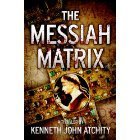
The
Messiah Matrix
Kenneth John Atchity
Price: $5.99

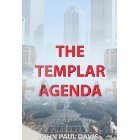
The
Templar Agenda
John Paul Davis
Price: $1.19

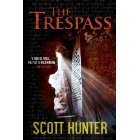
The
Trespass (An Archaeological Mystery Thriller)
Scott Hunter
Price: $0.99

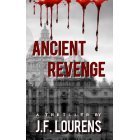
Ancient
Revenge
JF Lourens
Price: $0.99


The
Protocol (A James Acton Thriller, Book #1) (James Acton Thrillers)
J. Robert Kennedy
Price: $0.99

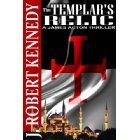
The
Templar's Relic
J. Robert Kennedy
Price: $5.99

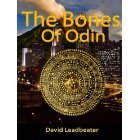
The
Bones Of Odin (Matt Drake 1)
David Leadbeater
Price: $1.49

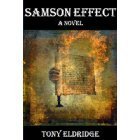
The
Samson Effect: A Novel
Tony Eldridge
Price: $0.99


Tomb
of Atlantis
Christopher David
Petersen
Price: $2.99


See even
more similar items
Find Great
Deals on Millions of Items Storewide
› Books
› Movies
& TV
› Kindle
› Kindle
Paperwhite
› Kindle
Fire HD
› Amazon
Instant Video
› Music
› MP3
Downloads
›
Electronics
› Video
Games
› Cell
Phones & Accessories
›
Computers & Software
› Sports
& Outdoors
›
Automotive
›
Industrial & Scientific
› Prime
› Toys
& Games
› Baby
›
Clothing
› Shoes
› Jewelry
› Watches
› Beauty
›
Magazines
› Kitchen
& Dining
› Office & School Supplies
› Home
Improvement
› Grocery
› Patio,
Lawn & Garden
› Health
& Personal Care
› Gourmet
Food
› Gift
Cards

Connect
with us




Published on May 02, 2013 12:02
May 1, 2013
Ray Bradbury’s 7 Rules for Writers
1. Write with gusto.
2. In quickness is truth.
3.Write who you are.
4. Don’t write for money or fame.
5. Feed the muse daily.
6. Don’t be afraid to explore the attic.
7. Surprise yourself.
Bonus Rule: Do the work you were born to do — and no one else’s. Towards the end of Zen in the Art of Writing, Bradbury includes a series of poems about creativity. One of them is entitled, “What I Do Is Me, For That I Came.” In it, he writes:
Be not another. Be the self I signed you in your blood…
I leave you gifts of Fate most secret; find no other’s Fate,
For if you do, no grave is deep enough for your despair
No country far enough to hide your loss.
Ray Bradbury comments on his career and his sources of inspiration.

Published on May 01, 2013 00:00
April 30, 2013
The Messiah Matrix Excerpt - Featured Title on BookDaily!
BookDaily
Browse
Emerging
Authors
My
Shelf
Mystery & Thriller
Apr. 30, 2013
Today's Featured Title
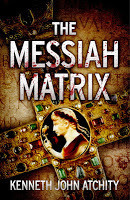
The
Messiah Matrix [Kindle Edition]
by Kenneth
John Atchity
ISBN / ASIN: 0957218907
Anyone passing Ryan McKeown, S.J., on
his morning walk down Rome’s Janiculum, would have witnessed a
worried-looking young man with dark shadows under his eyes. His usual
composed countenance had disappeared and his furrowed brow revealed the
burden he now bore. Images of the penitent’s death plagued him, more so
because of the man’s extraordinary confession and enigmatic last words,
“Find Father Ryan…memory in ashes of Jasius…in the Gesù.” Why did this
mysterious monsignor use his last breath to deliver this strange message
to his killer? What was he trying to tell me?
It was appalling even to entertain the
thought that Holy Mother Church might have ordered the killing of a
monsignor. It was just too horrible to contemplate. Surely the Albanian
was mistaken?
Not only was he wrestling with the shock
of dual murders but Ryan’s doubts about his faith now consumed his every
waking moment and haunted his nights. It was mind versus spirit, and the
mind threatened to destroy every feeling his spirit flourished on. Ryan’s
mind was filled with a jumble of questions in a jumble of
languages—English, commendably fluent Italian, and an ancient dialect
insiders would readily identify as the vulgar Latin spoken almost
exclusively at the highest ecclesiastical levels in Vatican City.
The names flashing through his
brain—Eusebius, Philo Judaeus, Lactantius, Origen, Tertullian—were an
esoteric litany of historians, poets, biblical scholars, and
philosophers—all from the infancy of Christianity. Ryan’s obsession with
tracking down the origins of the Catholic faith permeated his consciousness.
The area spanned by Via Garibaldi was a
living postcard of tiled roofs, bell towers, cupolas and gardens set off
in breathtaking contrast against the cloudless turquoise sky. But this
morning the young American priest, lost in ruminations about the fateful
confession and his biblical doubts, had been oblivious to the spectacular
view--and to the breeze ruffling his curly brown hair to more than usual
disarray. It would be difficult to recognize Ryan as a recently ordained
priest in his casual street clothes and comfortable black Reeboks, much
less one enrolled in the pontifically authorized Society of Jesus, known
to the world as “Jesuits.”
Ryan’s questions about troubling
inconsistencies in traditional Catholic doctrine had only grown more
confusing as he’d turned from his graduate studies of the Latin epic poet
Virgil to a temporary stint teaching a course on early Christian theology
at Georgetown University in Washington, D.C. At that time he was a Jesuit
scholastic, getting in-the-classroom experience, and testing the demands
of his calling. Now that his priesthood had been consecrated through the
sacrament of Holy Orders and he had been dispatched to the Eternal City
to study the New Testament and its commentaries, Father McKeown’s
personal doubts and scholarly perplexities were, he feared, all too close
to becoming a neurotic disorder.
“How can I accept ordination with all
this uncertainty?” he’d once asked his confessor, a functional
octogenarian alcoholic, one of the cadre of emeriti that staffed the
Woodstock seminary.
“How do you feel about your faith?” the
old man asked.
“I feel wonderful,” Ryan admitted. “When
I smell the incense in the presence of the Holy Sacrament, I feel…holy…I
feel right.”
“Then act as if you were certain,” the
old priest had advised. “It is a corollary of Pascal’s wager. There’s no
such thing in this world as absolute certainty. So accept that and go
forward acting toward the best outcome no matter what.”
As the days before his ordination became
cluttered with crucial commitments and endless ceremonies, Ryan found he
had no more time to entertain his uncertainties. The trouble with me, he
ruminated, is that I’ve always had too little time—for everything. Things
just keep happening before I’ve got them figured out. He’d always wished
there could be an off-calendar eighth day of the week to do nothing but
consolidate what you actually think, hopefully believe, and truly feel.
It was all, to Ryan, a bit
overwhelming—especially for a young man who was still intent on figuring
out, one piece at a time, the immense puzzle that was the Roman Catholic
Church, the religion into which he had been involuntarily baptized as an
infant, willy-nilly confirmed as an adolescent, and hesitantly ordained
as a priest of its most militant order.
Now it was too late, as far as the
priesthood was concerned. He had been confirmed in that direction and,
following his old confessor’s advice, determined to make the best of it.
To his grateful surprise, even after his ordination his immediate superiors
not only encouraged him to continue following his scholarly nose
investigating the origins of the Church, but had also mysteriously
arranged the residency in Rome.
Whenever his scholarly path seemed to
disappear before his eyes, he returned to the simple basic questions that
had inspired this quest: How could it be that Theophilus, one of the
earliest Christian apologists, wrote nearly 30,000 words about
Christianity without once mentioning Jesus Christ? How come the name
“Jesus Christ,” in fact, doesn’t appear in any Greek or Latin author
until after the Council of Nicaea? Why was it that the only
near-contemporary account that mentioned Christ, a suspiciously precise
paragraph known as the Testimonium Flavianum, in Josephus’ Antiquities of
the Jews, had been proved to be a patent insertion into that historical
narrative? How could Jesus have been born in 1 A.D. when the Gospels say
he was born before Herod the Great died—and King Herod’s death could be
pinpointed to 4 B.C.? Even Philip Cardinal Vasta, now known to the world
as Pope Pius XIII, had lamented that the greatest obstacle for spreading
the Catholic faith today was that the historical existence of Jesus could
no longer be made credible. If Ryan could somehow find a way to stamp a
measure of documented authenticity on the career of the Church’s founder,
he would be serving the Holy Father as well as his own wavering vocation.
If he could make that tangible contribution to the church, he might
justify his own doubt-ridden existence and give himself a break.
If he could find evidence to prove
objectively that Jesus really existed as a human being, he’d be able to
reconcile all the contradictions. Without that proof certain—that had
eluded scholars for some two thousand years—every thread of the tapestry
of biblical scholarship became just another loose end and his profession
based on an allegory at best, at worst, a phantom.
Continues...
Excerpted by permission. All rights
reserved. No part of this excerpt may be reproduced or reprinted without
permission in writing from the publisher.
Excerpts are provided solely for the
personal use of visitors to this web site.

Published on April 30, 2013 15:37
Yoga Gives Back "The Rise for Women Challenge"
[image error]
For the cost
of one yoga class you can change a life.
YGB is
invited by Arianna Huffington (The Huffington Post) for
"The
Rise for Women Challenge"
April 24-June6, 2013
[image error]CLICK
HERE
[image error]
Help YGB win this challenge by donating any amount here
between April 24th and June 6th!! The Huffington Post, Skoll Foundation,
and Half the Sky Movement host this challenge to help non profit
organizations working for women to grow and do more!!! All donations for
YGB during this period will be credited towards this Challenge and you
will be profiled on the website. Thank YOU!!!
[image error]
follow
on Twitter | friend on Facebook | forward
to a friend
Copyright © 2013 Yoga Gives Back, All rights
reserved.
You are receiving this email because you opted in through our web site or
one of our events.
Our mailing address is:
Yoga Gives Back
400 South Burnside Ave. #11B
Los Angeles, CA 90036
Add
us to your address book


Published on April 30, 2013 00:00
April 29, 2013
April 26, 2013
Half of Amazon Book Sales are Planned Purchases
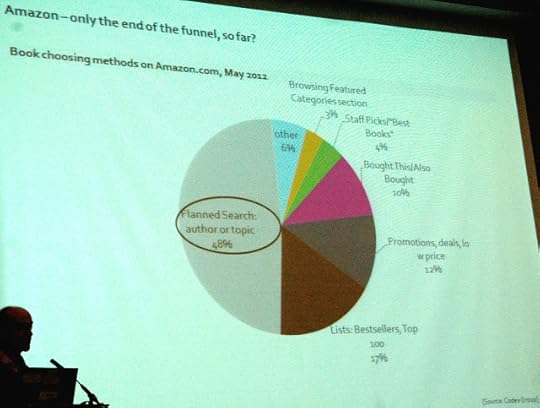
The Media Briefing’s Digital Media Strategies conference is going on in London this week. Although I couldn’t go, I’ve been able to follow along via Twitter and a couple of tweets have really stood out.
The speaker was Douglas McCabe, COO of Enders Analysis, who had other interesting points to make yesterday about the use of data, online market demographics and measuring success. But this single statistic, that nearly half of Amazon’s book sales come from people who already know what they want and are simply using Amazon as a way to get it, has huge implications.
After conducting more than 250,000 interviews about reading behavior since 2004, Codex has found that a major shift has taken place in discovery in the past two years, as digital books have become a significant part of the book world.
Two years ago, 35% of book purchases were made because readers found out about a book in bricks-and-mortar bookstores, the single-largest site of discovery. This year, that figure has dropped to 17%, a reflection both of the closing of Borders and the rise of e-readers. In the same period, personal recommendations grew the most, to 22% from 14%. Some three-quarters of personal recommendations are made in person, while the rest come by e-mail (8%), phone (7%), Facebook (4%) and other social networks (3%).
Even though it’s not news that more and more readers are becoming “hybrid” readers, meaning they read and learn about books both online and off, the Codex study shows us that despite the hubbub, digital discovery does not carry as much weight as personal recommendations.
I’d recommend reading both links for more details on the Codex Group report that I, sadly, don’t have access to. They makes for fascinating reading!
It’s well known that book lovers are quite happy to spend time in a bricks-and-mortar bookshop to see what sort of interesting titles they find and then go home to buy on Amazon where the prices are often cheaper. Indeed, it’s been identified as such a significant problem that HarperCollins CEO Victoria Barnsley recently made the interesting suggestion that bookshops ought to charge people to come in and browse, an idea that has had a somewhat chilly reception.
48 percent of Amazon book choices are pre-planned
Self-publishers often think themselves unaffected by ‘planned search and purchase’, not least because for most of us the idea of having our books in a bookshop feels like a distant dream. The assumption that self-publishers work to is that the key to cracking Amazon is to rank highly in their recommendation algorithm and many pixels are spilt by self-publishing bloggers telling us how to do exactly that.
But McCabe’s statistics show that only a piddling 10 percent of Amazon book choices are made because of its ‘bought this/also bought’ recommendation engine. Bestseller and top 100 lists influence 17 percent of book choices, with 12 percent down to promotions, deals, or low prices. Only 3 percent came through browsing categories. Planned search by author or topic, however, makes up a whopping 48 percent of all book choices.
The title of McCabe’s slide is “Amazon – only the end of the funnel, so far?”, and it’s an important point for self-publishers to take to heart. Amazon is a destination for purchase, the place you funnel your fans to, not a discovery mechanism in and of itself. People are simply not browsing for books based on Amazon’s recommendations, not in any significant numbers.
Self-published authors have limited resources for promotion and these figures show that you should focus not on trying to woo Amazon’s algorithm, but on building awareness outside of Amazon. Rather than hoping to gain traction within that 10 percent of people who pay attention to Amazon’s recommendations, or trying to crowbar your title into bestseller or top 100 lists, you should be focusing on building an independent fan base. No one can search for your books if they don’t know you exist.
I’ve written before about how self-publishers, and traditional publishers for that matter, should refocus on direct sales in order to collect valuable customer data. These stats bolster that position — if the majority of Amazon’s sales come from planned search, that indicates a clear intention to buy on the part of the searcher. That intention has been formed outside of Amazon, perhaps due to reviews, social media or word of mouth. And once your readers have formed an intention to buy, you can take action to funnel them to your own shop. For those of a rebellious nature who’d like to give Amazon the two fingers, that’s reassuring.
http://www.forbes.com

Published on April 26, 2013 00:00
April 24, 2013
Book Review: “Dead Peasants” by Larry D. Thompson
Larry D. Thompson in his new book, “
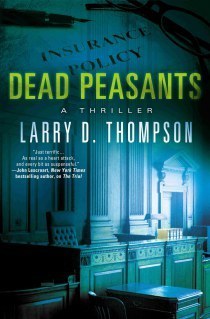 Dead Peasants” published by Thomas Dunne Books brings us into the life of Jack Bryant.
Dead Peasants” published by Thomas Dunne Books brings us into the life of Jack Bryant.Synopsis:
Lawyer Jack Bryant retires early to Fort Worth to kick back, relax and watch his son play football at TCU. Bored with retirement he opens a pro bono office in his RV. When Jack finds an elderly widow at his doorstep, clutching a check for life insurance proceeds on her husband but payable to his former employer, Jack files a civil suit to collect the benefits rightfully due the widow. A seemingly accidental death of his client’s husband thrusts Jack into a vortex of serial killings. He and his new love interest find themselves targets in the same murder for hire scheme. To stop the killings Jack must unravel what in their past makes certain people worth more dead than alive.
Somehow the term, dead peasants and legal thriller do not seem to go hand in hand. Dead Peasants seems to lend itself to a tale of knights and kings and feudal society don’t you agree? It seems that dead peasants is a legal insurance term for when an employer takes out an insurance policy on his employees and continues to pay the premiums even after the employee’s dismissal or retirement. The employer hopes to collect the benefits upon that person’s death. This practice has been deemed illegal in most states. Jack Bryant is brought into the case when he finds that the former employer of June Davis’ deceased husband had a very large life-insurance policy, a dead peasant policy, on her husband, which made the employer the beneficiary. Now as Jack goes to court to collect the benefits rightfully due June he also has to battle to stay alive as he has walked into a murder mine field. This is one exciting book. An action, adventure, mystery, courtroom thriller as Jack’s life is in deadly danger. I do not recommend you drink coffee while reading this book as there is more than enough excitement to keep you going. Give yourself plenty of time to enjoy this book as you will want to finish it before going to bed. “Dead Peasants” is an exciting adventure from start to finish.
http://vicsmediaroom.wordpress.com/

Published on April 24, 2013 00:00
April 22, 2013
Honored To Be A Sponsor of Yoga Gives Back Sister Aid
Filmed in November 2012, this 7 minute video tells inspiring stories of YGB fund recipients, as well shedding light on the harsh reality they live in. YGB's direct funding program "Sister Aid" is making a positive impact on so many mothers and daughters in India.

Published on April 22, 2013 00:00
April 19, 2013
April 17, 2013
Nook Users Book Club Reviews Larry D. Thompson's Dead Peasants
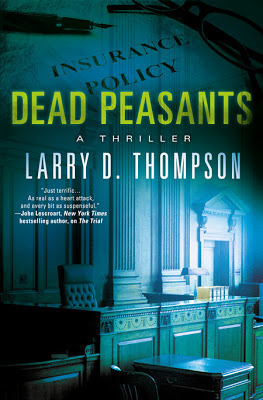
Jack Bryant was born and raised in Ft Worth, Texas. Some might say he grew up on the wrong side of the tracks. Jack, soon to retire, is a successful plaintiff lawyer practicing in Beaumont, Texas. He moved back to his home town to watch his son play college football and to show all of those people (from the right side of the tracks) how well this former poor boy did as an adult. His son, JD Jr., is a walk-on at TCU and is balancing his training with spending time with his father. Upon arriving home Jack meets Colby Stripling, a woman with a secret, as well as a real estate agent who sells him the oversized home that he pays for with cash, just because.
When Jack realizes that retirement isn’t all it’s cracked up to be he decides to become a pro bono lawyer for the less fortunate. His first case is for June Davis, the widow of a local man (Willie Jr.) Jack has become friends with. June finds out by accident that his former employer, Allison Motors, had a life insurance policy on her late husband that paid $400,000 when he died. Jack attempts to get Allison Motors to relinquish the funds to June however, during the course of the trial it is determined that there is more going on than just one Dead Peasant policy.
This is a fun and fast paced novel without a lot of unnecessary filler. The characters had very distinct personalities, even those that were not so prominent such as Willie Jr. You could see the confusion he suffered with the changing racial times and what he was brought up with. The descriptions of the area are rich and accurate. Being a Native of Fort Worth, I loved reading about Fort Worth, the local streets, buildings and areas that are so familiar to me. On the other hand, I found some of the other details to be exaggerated. We understand that Jack is filthy rich and he likes things a certain way, but it felt like overkill or name dropping with the incessant use of name brands or school names. It felt a little bit like product placement in the movies. However, these negatives are not enough to distract from the story line. The novel made us guess and then guess again as twist and turns led to the eventual killer. This book is not too long (~210 pages) and would make for a great read weekend read. Excellent job!



 About the Author:
About the Author: Larry D. Thompson is a veteran trial lawyer and has drawn on decades
of experience in the courtroom to produce riveting legal thrillers. Dead
Peasants is is third After graduating from the University of Texas
School of Law, Thompson founded the Houston trial firm where he still
serves as managing partner. The proud father of three grown children, he
lives and works in Texas but spends his summers in Colorado, where he
crafts his novels and hikes the mountains surrounding Vail. His greatest
inspiration came from Thomas Thompson, his brother, who wrote many
best-selling true-crime books and novels.

Published on April 17, 2013 00:00





